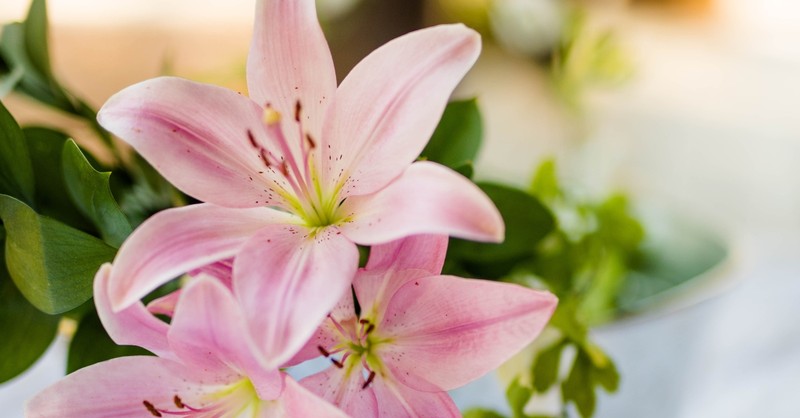What Does it Mean to "Consider the Lilies of the Field"?
- Meg BucherWriter and Author

“And why are you anxious about clothing? Consider the lilies of the field, how they grow: they neither toil nor spin.” (Matthew 6:28)
The anticipation of Spring is upon us, yet in some places the ground is still cold and hard. As I write this, streets and neighborhoods around the world are increasingly desolate, as we battle a global pandemic. In these moments, it’s essential to remember God is sovereign. He isn’t surprised, and He knows what tomorrow will bring. The assurance of His faithfulness and grace will begin to break through the ground in pops of color in every variety. Though the world seems like a frightening place, we can know, just as the Lord adorns the flowers and initiates the regrowth of Spring, He is sustaining and providing for us. In the most difficult moments of worry or anxiety, God faithfully reminds us to "consider the lilies of the field".
These verses are excerpts from the Jesus’ most well-known sermon, The Sermon on the Mount. The ESV translation of Matthew 6:25-34 is titled, “Do Not Be Anxious.” The apostle Luke recorded Jesus’ words as well: “Consider the lilies, how they grow: they neither toil nor spin, yet I tell you, even Solomon in all his glory was not arrayed like one of these” (Luke 12:27 ESV). We can trust God’s provision. The proof is in the beauty and compassionate care He has for all of creation. How much more does He love and sustain us, created in His image?
Photo Credit: © Unsplash/Hannah Olinger

What Did Jesus Mean When He Used the Phrase “Consider the Lilies?”
“The lilies spoken of in the New Testament were probably the scarlet marathon (Lilium Chalcedonicum) or “red Turk’s-cap lily,” which comes into flower at the season of the year when our Lord’s sermon on the mount is supposed to have been delivered,” Easton’s Bible Dictionary explains, “It is abundant in the district of Galilee; and its fine scarlet flowers render it a very conspicuous and showy object, which would naturally attract the attention of the hearers.” Jesus often spoke in parables and visuals those around Him could understand; in this instance pointing to a beautiful flower they could probably see while He was speaking. Jesus never spoke to confuse anyone, but so that all would hear and understand. If we stop to consider how beautifully God clothes the flowers in the fields, we will recall His care over us. Considering the lilies reminded them, and reminds us today, how close our God is.
Christ faithfully leads us through each day’s concerns and challenges. His very presence emphasizes the importance of our obedience to God’s word. “Toiling away out of fear for the future is not the same thing as God-glorifying labor” (“The Antidote to Worry”). God’s Word looks out for our best interest. As we were created to honor Him, He faithfully guides us to the path of a full life in Christ. “There is scarcely any one sin against which our Lord Jesus more largely and earnestly warns his disciples,” explains Matthew Henry’s Commentary, “…than the sin of disquieting, distracting, distrustful cares about the things of life, which are a bad sign that both the treasure and the heart are on the earth.”
Faith trusts in the providence of God. “The point here is that you are eternal,” explained John Piper, “and the grass and the lilies last for a day. Yet God clothes them more beautifully than Solomon.” Providence is God’s divine care of all creation, “omnisciently directing the universe and the affairs of humankind with wise benevolence.” In this part of Jesus’ sermon, He begs His listeners, and us, to consider the lilies of the field and the birds of the air—simple elements of nature that function instinctively. “God never simply sees without acting. He is God. He is not a passive participant in a world that exists without his sustaining it,” Ibelieve.com

.jpeg)